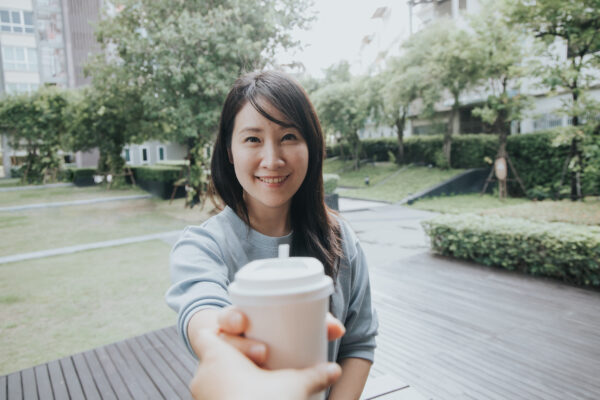AUSTIN, Texas – Even though they often enhance happiness, acts of kindness such as giving a friend a ride or bringing food for a sick family member can be somewhat rare because people underestimate how good these actions make recipients feel, according to new research from The University of Texas at Austin.
The study by UT Austin McCombs School of Business Assistant Professor of Marketing Amit Kumar, along with Nicholas Epley of the University of Chicago, found that although givers tend to focus on the object they’re providing or action they’re performing, receivers instead concentrate on the feelings of warmth the act of kindness has conjured up. This means that givers’ “miscalibrated expectations” can function as a barrier to performing more prosocial behaviors such as helping, sharing or donating.
The research is online in advance in the Journal of Experimental Psychology: General.
To quantify these attitudes and behaviors, the researchers conducted a series of experiments.
In one, the researchers recruited 84 participants in Chicago’s Maggie Daley Park. Participants could choose whether to give away to a stranger a cup of hot chocolate from the park’s food kiosk or keep it for themselves. Seventy-five agreed to give it away.
Researchers delivered the hot chocolate to the stranger and told them the study participant had chosen to give them their drink. Recipients reported their mood, and performers indicated how they thought recipients felt after getting the drink.
Performers underestimated the significance of their act. They expected recipients’ mood at an average of 2.7 on a scale of -5 (much more negative than normal) to 5 (much more positive than normal), while recipients reported an average of 3.5.
“People aren’t way off base,” Kumar said. “They get that being kind to people makes them feel good. What we don’t get is how good it really makes others feel.”
The researchers also performed a similar experiment in the same park with cupcakes. They recruited 200 participants and divided them into two groups. In the control group, 50 participants received a cupcake for participating. They rated their mood, and the other 50 people rated how they thought the receivers felt after getting a cupcake.
For the second group of 100, 50 people were told they could give away their cupcake to strangers. They rated their own mood and the expected mood of the cupcake recipients. The researchers found that participants rated cupcake recipients’ happiness at about the same level whether they got their cupcake through an act of random kindness or from the researchers. What’s more, recipients who received a cupcake through an act of kindness were happier than control group recipients.
“Performers are not fully taking into account that their warm acts provide value from the act itself,” Kumar said. “The fact that you’re being nice to others adds a lot of value beyond whatever the thing is.”
In a lab experiment, Kumar and Epley added a component to assess the consequences of kindness. Participants first either received a gift from the lab store or were gifted one by another participant, then played a game. All participants who received an item were told to divide $100 between themselves and an unknown study recipient.
The researchers found that recipients who received their lab gift through another participant’s random act of kindness were more generous to strangers during the game. They divvyed up the $100 more equally, giving away $48.02 on average versus $41.20.
“It turns out generosity can actually be contagious,” Kumar said. “Receivers of a prosocial act can pay it forward. Kindness can actually spread.”
For more details about this research, read the McCombs Big Ideas feature story and watch the video explaining Kumar’s work.




